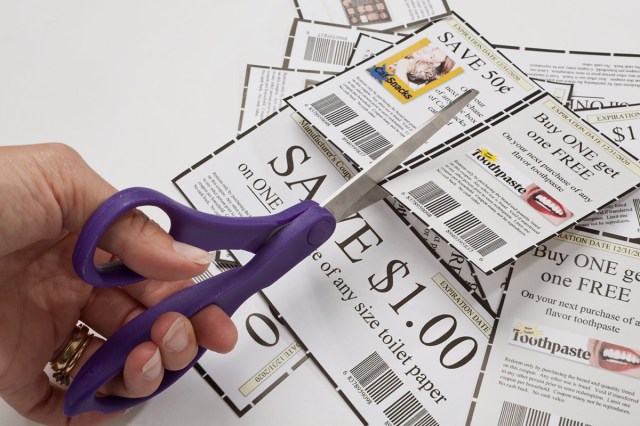It’s fair to say that most of us are looking for better ways to save money, whether that’s for a specific goal like an addition on your home, or for peace of mind in retirement. There are lots of money-saving tips out there, but the best should be simple to complete, not complicated hacks that feel like a full-time job! If you’re just starting out, don’t try to tackle a whole bunch at once. Try one new money-saving habit for a little while. Then add in another one. If one doesn’t work, try a different tip instead. Every small step you take gets you closer to your money goals.

Schedule Money Check-Ins
Schedule several times throughout the year to check in on your money. Some can be a quick once-over, while others should be a more in-depth look at your finances.
Once a month, do your monthly budget. Consider what you’ll earn and where that money will go. Schedule bill payments and transfers for retirement, savings, vacations, or any other long-term plans. Plan for car maintenance or anything else coming up that month.
Then, once a week, set aside a shorter amount of time to check in with your budget and make sure you’re on track. Pay off credit cards you used that week and readjust any budget categories that got off-track. It’s much easier to course-correct once a week than to try to catch up at the end of the month.
Finally, once a year, look at your overall money health and budget, considering big goals like home renovations or an overseas trip. Whether you’re gearing up for retirement or are already living that post-grind bliss, make sure you and your partner are on the same page. Consider whether one of you needs to earn more money or even whether one of you wants to earn less and do something else with your time. Start dreaming about one-year, five-year, or 10-year plans.

Change Jar Treat Fund
There are days when all of us just want a little pick-me-up, like a fancy coffee, a new book, or a trip to the movies. The problem with these little treats is that individually, they don’t feel terribly expensive, but they can add up! In fact, we often don’t realize just how much we’re spending on them, because each little purchase seems so small. That’s where the change jar treat fund can be helpful.
Anytime you find yourself with extra change or a few dollars in your wallet, add them to your change jar. When you have enough money, allow yourself one of those little treats. You won’t blow your budget, but you can still indulge every so often.

Freezer Cash
The concept of freezer cash can help you avoid impulsive spending. It’s exactly what it sounds like: take your cash or credit card, and freeze it in a block of ice. You won’t be able to spend it until it’s thawed. This builds in a waiting period, so you have time to consider whether you really want to spend your money on the item in question.
Reader Favorites

Grocery Deals
Groceries take up a good part of most people’s monthly budgets. One of the easiest ways to save is to check the circled deals in weekly grocery store discount ads. Many times, those circled deals are loss leaders. That means they’re priced low enough that the store could lose money, but it’s worth it to them to get you in the door and sell you other items as well.
You don’t have to be a serious coupon clipper to nab other great deals. Some stores have double-ad days, where last week’s ads and this week’s ads overlap, giving you more deals at once. Some stores also sell “ugly produce,” which looks a little wilted or bruised but is generally fine, at a discount. You can even find grocery staples at Dollar Tree. Many major cities have coupon blogs specific to the area, where you can see the best local deals for your food. Also, use cashback apps like Ibotta and Rakuten to get money back on your grocery shopping trips.

Check In With Companies
Call companies that you pay a monthly or yearly fee to use — like cable, internet, phone, and satellite radio — and see if they’ll offer a better deal than you’re currently getting. We just did this at my house and ended up with faster high-speed internet at a lower price. It helps to do some research so you can come to the conversation armed with what competitors are offering. If your company refuses to match it, you might want to switch to the competition instead. But usually companies will match the rate. They want to keep you around!

Airfare Reimbursement
I’ve always assumed that if I book a plane ticket and the price goes down, it was just my tough luck to deal with. It turns out, many airlines have policies where you can get some of that money back. Some airlines refund the difference if you booked a certain kind of ticket. Some offer credits, and some refund the entire difference, regardless. You can find airline reimbursement policies on their websites, or you can call your airline to see if you can get a reimbursement.

Store Discounts
Many stores, including several craft stores, department stores, drugstores, and even grocery stores, offer discounts for seniors. Some of these discounts are on certain days or times, while others are good anytime you shop.
Teachers, military members, first responders, and members of clubs like AAA or AARP may also get discounts on certain goods and services.

Library E-Books
We hope many retirement days are spent curled up with a good book. One of the easiest ways for avid readers to save money on books is to stop buying them! I’ve been a library e-book lover for several years now. It still amazes me that I can push a few buttons and have an entire book to read for free without leaving my couch. You’ll need a device to read them on. We recommend e-readers for their E ink screens that are easy on the eyes, but any smartphone or computer will work.
I appreciate that my library gives me an estimate on how long it will likely take for my book to be ready. If there’s a hot new novel with a long waitlist, I’ll add my name. But I’ll also see if that author has a backlist of older books that they’ve written. While I’m waiting for the trendy novel to be ready, I’ll read one of theirs from a few years ago that’s less popular.

Automatic Dividend Reinvesting
Automatic dividend reinvesting is when the dividends of an investment you make are used to buy more shares or reinvested back into the company. You don’t miss the money, because you never see it before it’s reinvested. It’s a set-it-and-forget-it way of saving and making money, usually slowly and over a long period of time. Many brokerages offer this service without charging commissions or transaction fees.
Featured Image Credit: Alberto van Herckenrode/ iStock
More From Our Network
Better Report is part of Inbox Studio, an email-first media company. *Indicates a third-party property.

















